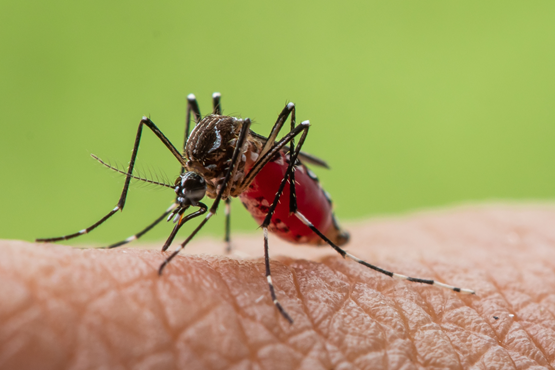
Dengue cases and deaths soar to record levels
read more

In pace with the unprecedented surge of dengue fever throughout the Americas, Brazil sees its worst outbreak, with confirmed cases nearing 4 million and more than 2 thousand fatalities in the country
In 2023, the dengue virus (DENV) severely hit several countries in Latin America and the Caribbean. Brazil accounted for the highest number of cases in the Americas, which altogether recorded more than 4.5 million infections, including 7,951 severe cases and 1,823 deaths. Mexico, Peru, Nicaragua and Bolivia also registered significant numbers of dengue cases and fatalities last year.
The Pan American Health Organization (PAHO) has warned that the multi-country outbreak will continue to rise throughout 2024. All four dengue serotypes (DENV 1, 2, 3, and 4) are circulating in the Americas, often simultaneously, mainly in Brazil, followed by Mexico, Peru, Nicaragua, and Colombia.
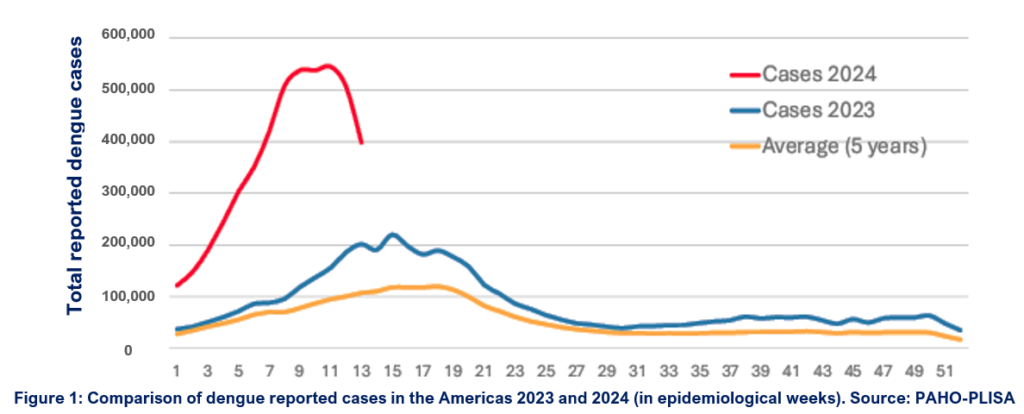
As of the latest epidemiological updates by the United Nations agency, nearly six million suspected DENV cases have already been reported across the Americas, with 5,603 severe cases and 2,193 deaths being confirmed. These numbers will likely increase substantially as American countries and territories still process their latest data on cases and fatalities for later submission to PAHO.
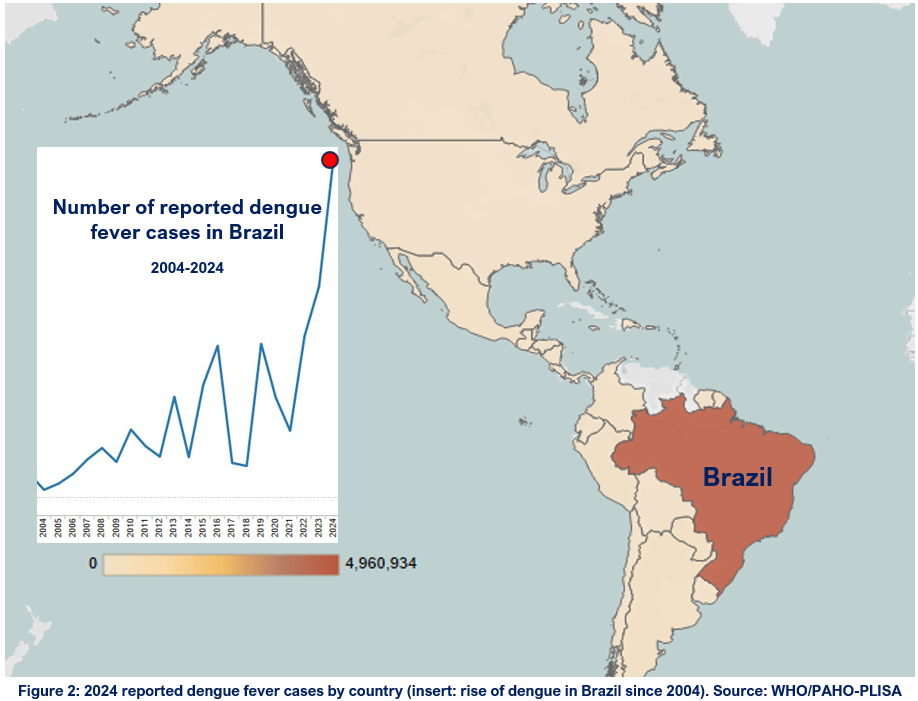
Again, Brazil has been hit the hardest among the countries of the region and is set to break yet another unfortunate record of number of infections and deaths by the dengue virus.
Diseases transmitted by mosquito bites are endemic throughout the Amazon rainforest, where almost all domestic cases of malaria are verified. Other arboviruses transmitted by the Aedes mosquitoes, such as dengue, chikungunya, yellow fever and Zika virus, are also prevalent in the region.
In recent years, there has been an increase in seasonal outbreaks of mosquito-borne diseases, particularly DENV and dengue haemorrhagic fever (DHF), in large metropolitan regions. Chikungunya virus (CHIKV), also transmitted by Aedes mosquitoes, is widespread across the country, with nearly 156,000 cases recorded so far this year and 78 confirmed deaths, plus 101 other deaths being clinically investigated.
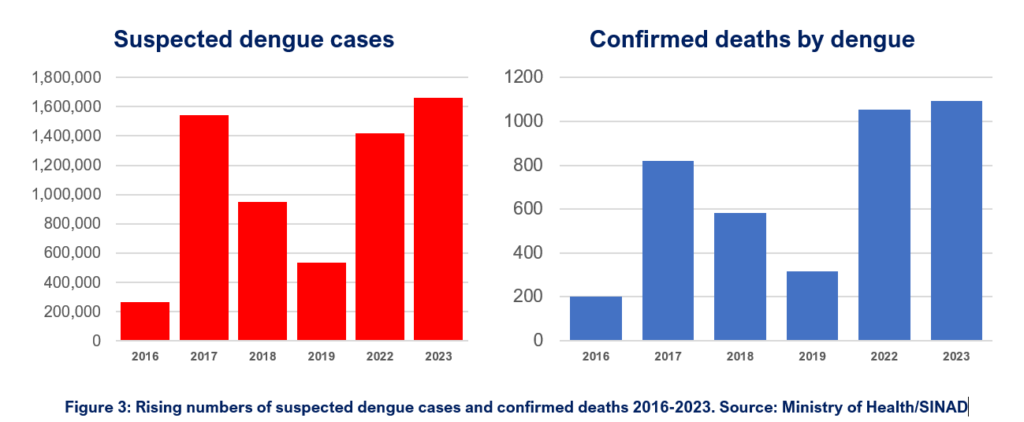
If these outbreaks were not enough, the Ministry of Health reports that, in Northern Brazil, the states of Amazonas, Rondonia, Roraima and Acre are going through a regional outbreak of Oropouche fever, a disease caused by the Oropouche virus (OROV) and transmitted by midges and mosquitoes, only second to dengue as the most prevalent mosquito-borne disease in the Amazon. Cases of OROV rose from 835 in 2023 to 3,861 this year and counting.
This year, Brazil has already tallied its worst dengue season, with an alarmingly high number of fatalities, while the Ministry of Health rushes to roll out vaccines and other preventive measures to attempt to arrest the spread of the disease.
Brazil’s most populated area, the Southeast region, home to the states of São Paulo, Rio de Janeiro, Minas Gerais and Espirito Santo, has recorded the highest number of cases and rate of incidence over the population.
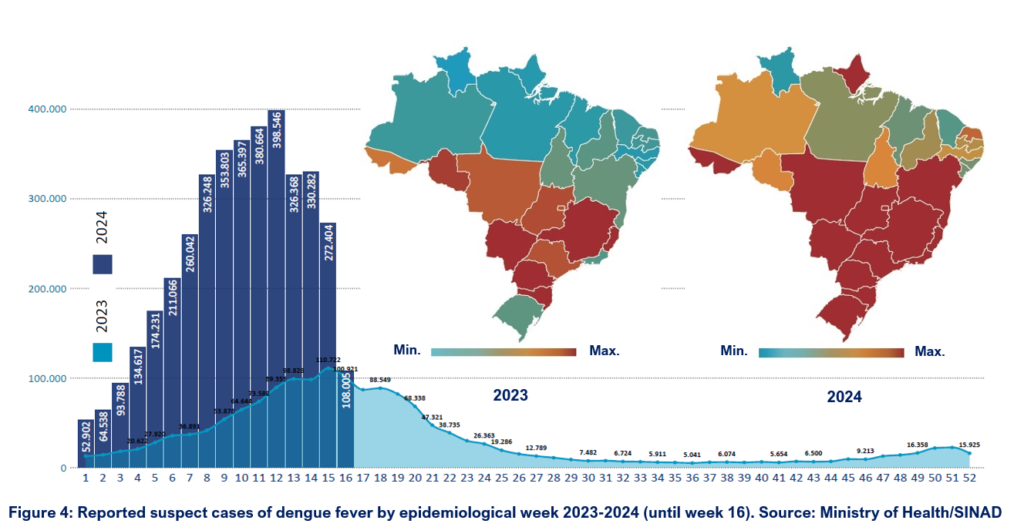
By the end of April, the federal health authority reported more than 3.8 million suspected dengue cases, with over 40,000 cases of severe dengue and dengue with alarming signs. The Ministry of Health also authority confirmed 1,792 fatalities among the infected population, while 2,216 deaths are under investigation.
Nine Brazilian states and the Federal District have already declared a state of public health emergency due to the current dengue outbreak. Nearly 600 municipalities have followed suit as the transmission rate remains high, though with a fatality rate marginally below that of 2023.
While the average incidence of dengue fever nationwide is 1,897 cases per 100,000 inhabitants, the Federal District and the states such as Minas Gerais, Paraná, Espírito Santo and Goias have incidence rates ranging from 2,714 cases per 100k inhabitants to stunning 8,267 cases per 100k inhabitants.
The Unified Health System (SUS), Brazil’s public healthcare system, is heavily overburdened due to the large number of infected people. Private clinics and hospitals are also stressed by the unprecedented surge of dengue infection nationwide.
In response to this outbreak, the Ministry of Health created the Public Health Emergency Operations Centre for Dengue and Other Arboviruses (COE) to coordinate the governmental measures to address the dengue public health emergency.
Brazil has become the first country to introduce a dengue vaccine into its national immunisation program, available under the SUS public health system. The tetravalent live-attenuated dengue vaccine (TAK-003), developed by Japanese pharmaceuticals Takeda, trading as Qdenga®, was rolled out earlier this year. It aims to prevent symptomatic dengue fever by any of its four disease serotypes, thereby reducing hospitalisations among the targeted age group.
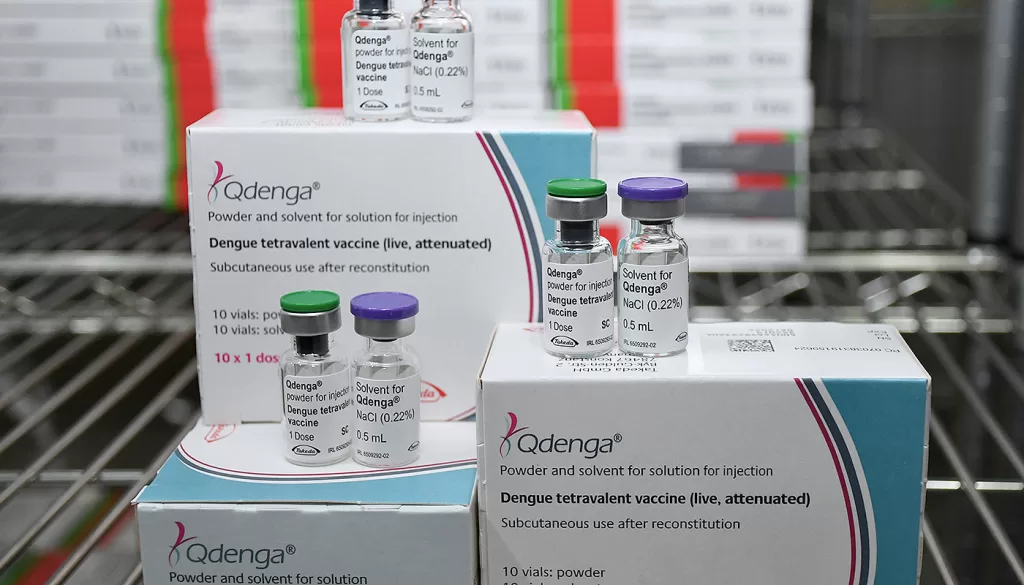
However, as the vaccine’s effectiveness is still being tested and evaluated by the health authorities, production and supply are slow and insufficient to cover the target population entirely. Therefore, this year’s vaccination campaign will be limited to high-incidence and transmission-intense settings, targeting children and adolescents aged 10 to 14. According to the Ministry of Health, this age group features the second-highest number of hospitalisations due to dengue, after older adults, a group for which the National Health Surveillance Agency (ANVISA) has not yet released immunisation measures. The vaccination schedule consists of two doses with a three-month interval between them.
Since the vaccine’s immunising effects are minimal in the short and medium terms, it would not be sufficient to stop the spread of the disease during this transmission season. Accordingly, it is crucial to implement and maintain stringent mosquito-prevention measures.
ANVISA is the federal port health authority overseeing shipboard sanitary controls. Due to the ongoing dengue outbreak, the federal health agency has not imposed specific control measures or restrictions upon ships’ operations. It advises visiting vessels to enhance enforcement of shipboard integrated vector management (IVM) plans, along with overall hygiene and sanitary conditions on board, strictly following the guidance and regulations issued by the World Health Organization (WHO), PAHO and national health organisations.
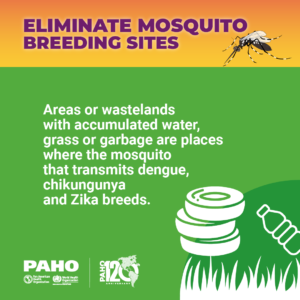
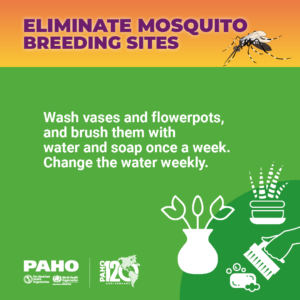
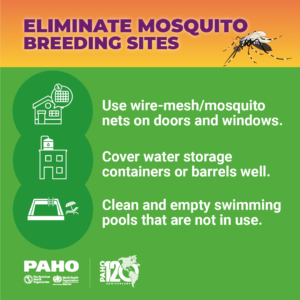
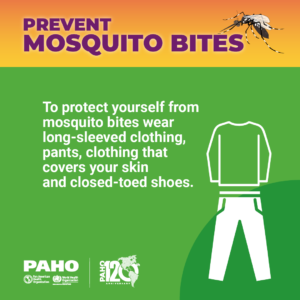
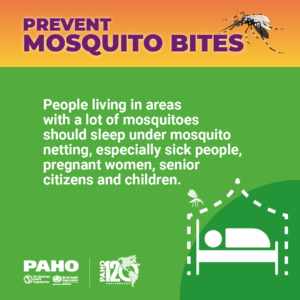
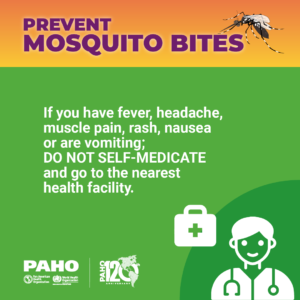
Ocean-going vessels play a significant role in spreading communicable diseases worldwide, as they can carry infected persons and vectors from port to port within and between countries. Early diagnosis and proper treatment are limited for most known mosquito-borne diseases. Shipboard health events may also disrupt or jeopardise the ship’s safe operation and the crew’s safety, leading to substantial costs to operators and insurers with medical treatment, repatriations, quarantine, and implementation of health measures required by local authorities.
To prevent transmission, vessels calling at Brazilian ports must adopt specific procedures outlined by the World Health Organization, as follows:
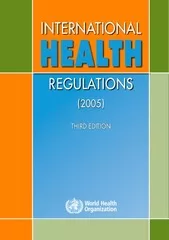
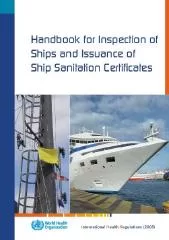
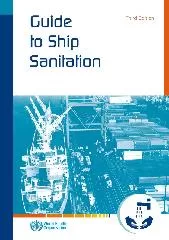

Most individuals with dengue have mild or no symptoms of infection; nevertheless, in its severe form, the disease can be deadly. The symptoms of dengue fever typically include:
People infected with DENV for the second time are more likely to develop severe dengue. Infection with one strain will provide lifelong protection against only that specific strain, but it is still possible to be infected by other strains and develop DHF. Therefore, immediate medical attention needs to be given to warning signs that could indicate an infection developing into a DHF, including:
There is no specific requirement to carry out specific tests to diagnose the disease, as it is based on the clinical symptoms presented. However, laboratory tests can identify the virus until the fifth day of the onset of the disease, and testing for antibodies can be done from the sixth day.
No specific treatment for dengue is recommended by the WHO, PAHO or the Brazilian Ministry of Health, and painkillers are the only medication prescribed to relieve symptoms – dengue patients must avoid acetylsalicylic acid, ibuprofen, or non-steroidal anti-inflammatory drugs (NSAIDs) as they increase the risk of bleeding. Paracetamol can be taken to reduce fever and alleviate body pain. Otherwise, dengue patients should rest, control high fever with medication, and drink plenty of fluids to prevent dehydration.
Mild dengue or DHF patients do not need to be isolated or quarantined. Yet, they should take precautions to avoid mosquitoes and adopt personal protection measures for at least a week after infection to prevent the spread of the disease. Sufferers need to seek immediate medical assistance if any dengue warning signs appear.
Please read our disclaimer.
Related topics:
Rua Barão de Cotegipe, 443 - Sala 610 - 96200-290 - Rio Grande/RS - Brazil
Telephone +55 53 3233 1500
proinde.riogrande@proinde.com.br
Rua Itororó, 3 - 3rd floor
11010-071 - Santos, SP - Brazil
Telephone +55 13 4009 9550
proinde@proinde.com.br
Av. Rio Branco, 45 - sala 2402
20090-003 - Rio de Janeiro, RJ - Brazil
Telephone +55 21 2253 6145
proinde.rio@proinde.com.br
Rua Professor Elpidio Pimentel, 320 sala 401 - 29065-060 – Vitoria, ES – Brazil
Telephone: +55 27 3337 1178
proinde.vitoria@proinde.com.br
Rua Miguel Calmon, 19 - sala 702 - 40015-010 – Salvador, BA – Brazil
Telephone: +55 71 3242 3384
proinde.salvador@proinde.com.br
Av. Visconde de Jequitinhonha, 209 - sala 402 - 51021-190 - Recife, PE - Brazil
Telephone +55 81 3328 6414
proinde.recife@proinde.com.br
Rua Osvaldo Cruz, 01, Sala 1408
60125-150 – Fortaleza-CE – Brazil
Telephone +55 85 3099 4068
proinde.fortaleza@proinde.com.br
Tv. Joaquim Furtado, Quadra 314, Lote 01, Sala 206 - 68447-000 – Barcarena, PA – Brazil
Telephone +55 91 99393 4252
proinde.belem@proinde.com.br
Av. Dr. Theomario Pinto da Costa, 811 - sala 204 - 69050-055 - Manaus, AM - Brazil
Telephone +55 92 3307-0653
proinde.manaus@proinde.com.br
Rua dos Azulões, Sala 111 - Edifício Office Tower - 65075-060 - São Luis, MA - Brazil
Telephone +55 98 99101-2939
proinde.belem@proinde.com.br